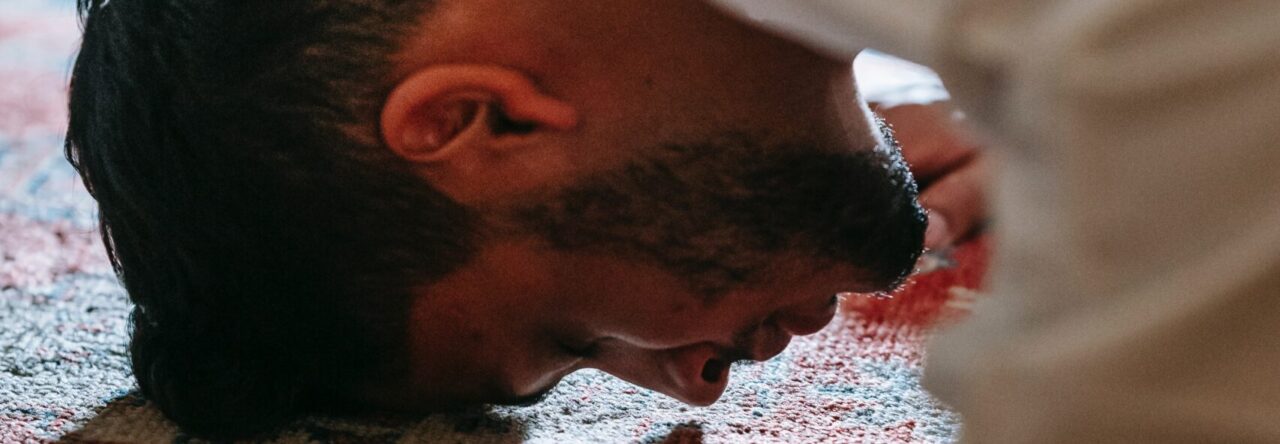I intend for these words to illustrate the sweetness found in the closeness of Allah experienced through prayer. The relationship we each have with Allah can truly only be expressed through the breathe of our spirits. May Allah grant us the courage to journey deeper to Him, fulfilling our purpose to worship Allah alone, as we rise and submit throughout our day in prayer.
As I have recently learned to perform the prayers, I found myself falling in love with Islam. The beauty of Islam is found in the compassionate guidance Allah bestows upon each of us as human beings created by Him: to praise Him and carry this truth throughout the earth. The Prophet (peace be upon him) showed us how to worship and answer our hearts’ call out to be closer to the Love that gave us life. Islam is truly the path to Allah in the fullness of all that He is. True to who Allah is, our lives are not a journey towards death but an adventure towards life. In this pursuit of Allah, I have come to see the darkness, the seasons of grief, as blessed. In truth, each of us knows in the recesses of our hearts how life on this earth is both brutal and beautiful. At times, this reality can seem overwhelming and cause us to seek temporary relief. In Allah though, is eternal peace that is so generously given as soon as you turn in His direction.
As I learned the rhythm of prayer, I experienced a transformation of my own heart. In the beginning, I was naturally excited to learn a new ritual, but I could not have imagined the true nature of the commitment I had made. I committed to choosing Allah every day, five times a day. I learned to praise Allah and seek Him in every season of my life, not only when my heart was heavy or filled with joy. I did not know the Arabic language beyond the way my heart recognizes its intrinsic beauty. Simultaneously, as I learned to pray, I interacted more and more with the Quran, and have come to recognize it as a sanctuary for the believer. This was not a quick process, and I slowly came to know the fundamental truth that, Allah’s timing is perfect.
This lifelong journey towards Allah requires you to truly surrender yourself to Him. Learning how to pray took me over a year, and it was a challenging process. There is nothing I know in this world that compares to performing the prayer in establishing that worshiping Allah is your true purpose and design. I had to confront the reality of my existence — notice the directions I was turning that were not serving me, and choose to reorient myself. Similar to the month of Ramadan where we establish new patterns, prayer allowed me to completely revitalize my days, filling them with peace and purpose.
In learning to perform the daily prayers, I discovered myself. I learned how capable I am to answer the call of Allah in my life. I learned how to not get caught in the chaos of life, but to seek the peace of Allah each day. For anyone who is new to Islam and desiring to learn the five daily prayers, I wish to tell you that all you need to do is turn towards Allah. Do not feel shy because, at one point, every Muslim was at the beginning of their prayer journey. Find a teacher who will guide you, give you feedback, and answer your questions. You will bloom as you travel down this path. Pray and spend time with your Muslim family, knowing you are not alone in your pursuit of Allah in this world. Stay focused because as surely as you will move towards God, you will have to reckon with the distractions that try to hold you back. The practice of prayer itself will keep you on the straight path because it will require you to rise early, cleanse and purify yourself, and submit when you hear its call. Be diligent in your practice. Be open to a new life patterned after the praise and remembrance of Allah, for that is where you will find peace.
